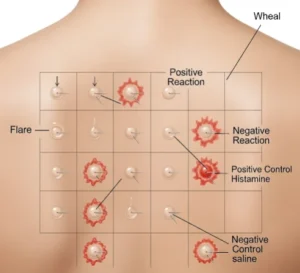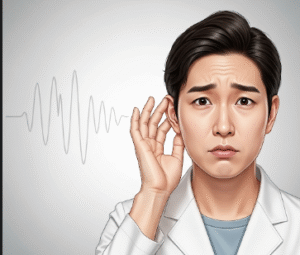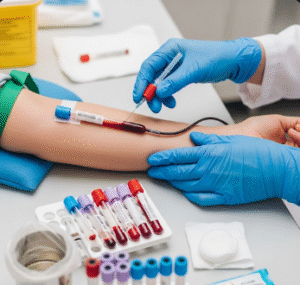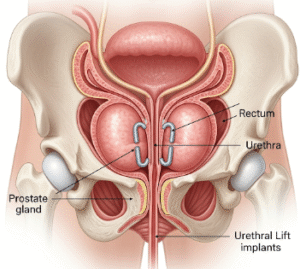Overview
Cytokine Release Syndrome (CRS) is a potentially serious systemic inflammatory response that occurs when the immune system is highly activated, releasing large amounts of cytokines into the bloodstream. CRS is most commonly associated with certain immunotherapies, including CAR-T cell therapy, monoclonal antibodies, and severe infections. South Korea offers advanced hospital care, immunotherapy monitoring, and supportive treatment for CRS patients.
What is Cytokine Release Syndrome (CRS)?
CRS is an immune-mediated reaction that can range from mild flu-like symptoms to life-threatening systemic inflammation. The syndrome develops when immune cells release excessive cytokines, leading to widespread inflammation, organ dysfunction, and in severe cases, shock or multi-organ failure.
Symptoms
Mild CRS:
- Fever
- Fatigue
- Nausea or vomiting
- Muscle or joint pain
- Headache
Moderate CRS:
- Hypotension (low blood pressure)
- Mild hypoxia (low oxygen levels)
- Tachycardia (fast heart rate)
Severe CRS:
- Severe hypotension
- High fever
- Respiratory distress or acute respiratory failure
- Multi-organ dysfunction (liver, kidney, heart)
- Confusion or neurological symptoms
Causes
- CAR-T cell therapy and other immune cell therapies
- Monoclonal antibody therapies (e.g., anti-CD20)
- Severe infections, including viral infections like COVID-19 or influenza
- Certain autoimmune conditions triggering excessive immune response
Risk Factors
- Patients receiving immune-based therapies, especially CAR-T therapy
- High tumor burden prior to immunotherapy
- Preexisting heart, lung, or kidney conditions
- Older age or frailty
- Severe infections with strong immune activation
Complications
- Multi-organ failure due to systemic inflammation
- Severe hypotension and shock
- Acute respiratory distress syndrome (ARDS)
- Neurological complications such as encephalopathy
- Death if untreated in severe cases
Prevention
- Pre-treatment assessment for risk factors before immunotherapy
- Gradual dose escalation in therapies known to trigger CRS
- Close monitoring during immune therapy
- Prophylactic medications in high-risk patients (e.g., corticosteroids)
Treatment Options in Korea
South Korea provides specialized care for CRS with immunotherapy centers and intensive care units:
1. Diagnosis & Monitoring
- Frequent measurement of cytokine levels (IL-6, IL-1, TNF-α)
- Continuous vital signs monitoring
- Laboratory tests for organ function
- Imaging for lung or organ involvement
2. Medications
- Tocilizumab (IL-6 receptor inhibitor) for moderate to severe CRS
- Corticosteroids to reduce immune overactivation
- Supportive medications for fever, pain, and hypotension
3. Supportive Care
- Intravenous fluids to manage hypotension
- Oxygen therapy or mechanical ventilation for respiratory distress
- Vasopressors for severe hypotension
- ICU care for multi-organ support













